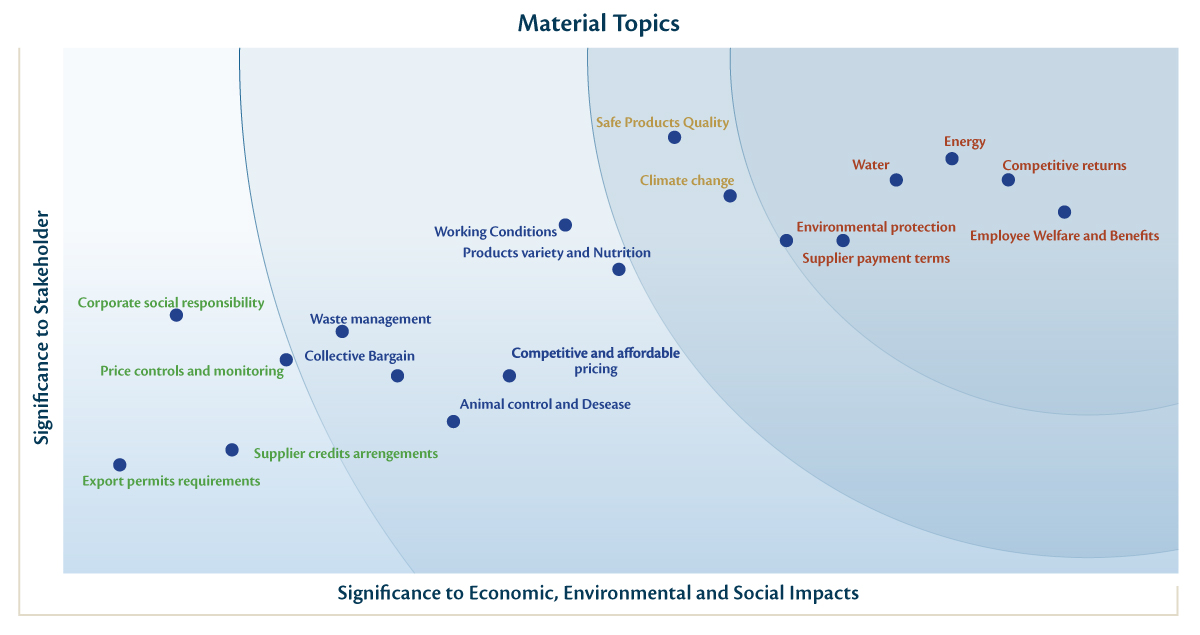Managing Material Issues and Reporting
MANAGEMENT APPROACH
The Group applies a collective approach in determining material issues identified by our stakeholders during engagement and assessment processes in our business units.
Material issues are identified and prioritised using a multi-stage process which starts at the business unit level, material issues and topics are identified and their relevant impacts assessed and shared with our stakeholders.
REPORT BOUNDARY
In defining the reporting boundaries, we focused on Group specific material impacts and on those whose impacts are material to our companies. While sustainability reporting continued to be fully embedded across our companies, we opted to define reporting boundaries by considering key Group companies with high and material impacts on economic, environmental and social aspects. This following sections have been revised and enhanced to present management’s approach to material issues. We introduced new sections covering material topics categorised under economic, environmental and social, materiality process, materiality matrix and the reporting period. These enhancements are to realign with GRI Standards provisions.
REPORT ENHANCEMENT
We have enhanced our report to include sections covering material topics categorised under economic, environmental and social. We have also added materiality measurement process, a materiality matrix and the reporting period, in order to continue to enhance our alignment with GRI Standards and provisions. Further, the report contains a section dedicated to our response to the Covid-19 Pandemic.

MATERIALITY MANAGEMENT
At Group level, all material issues and topics are assessed for their relevance and impacts on our broad stakeholders, corporate strategy and national context in relation to economic, environmental and social aspects. The Group Sustainability Team consolidate material topics as part of the Executive Board Committee Package for evaluation during their meetings.
All material issues and topics are assessed for their relevance and impacts on our broad stakeholders, corporate strategy and national context in relation to economic, environmental and social aspects.
During the year, material issues considered included:
| Economic | Environmental | Social |
|---|---|---|
|
|
|
MATERIALITY PROCESS
The materiality process was conducted by analysing material issues submitted by business units. Material issues and topics were considered based on stakeholder engagement and how the issues affect the business. This informs the materiality matrix presented below:

MATERIALITY MATRIX
During the year, water, energy, competitive returns, employee welfare and benefits, supplier payment terms and environmental protection were considered priority impacts by both the Group and our key stakeholders as presented in the materiality matrix presented below.
REPORTING PERIOD
The Group’s reporting period spans from 1 July to 30 June each year. This report covers the 12 months for the period ending 30 June 2020.
